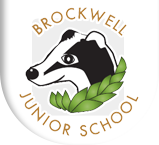‘Religions are different roads converging at the same point. What does it matter if we take different roads as long as we all meet the same goal?’ – Mahatma Gandhi
RE follows the Derbyshire Agreed Syllabus. Through learning about the beliefs and practice of the world religions, children develop understanding of others and learn to ask questions that develop their spiritual and moral understanding. The syllabus is non-denominational and multi faith in character. Collective worship is daily through our whole school assembly that is broadly but not exclusively Christian in nature. Friday assemblies are a celebration of excellent attitudes to learning and social or academic achievement.
RE explores big questions about life, in order to find out what people believe and what difference this makes to how they live, so that pupils can make sense of religion and worldviews, reflecting on their own ideas and ways of living.
Aims for Religious Education
Summary of Intent, Implementation and Impact
RE Policy
Throughout KS2, pupils learn about Christians, Hindus, Jewish people and Muslims as well as Humanists. They make connections between differing aspects of religion and consider the different forms of religious expression. They develop a knowledge and understanding of this range of religions and worldviews.
They consider the beliefs, teachings, practices and ways of life central to religion. They learn about sacred texts and other sources and consider their meanings. They begin to recognise diversity in religion, learning about similarities and differences both within and between religions and beliefs and the importance of dialogue between them. They extend the range and use of specialist vocabulary. They recognise the challenges involved in distinguishing between ideas of right and wrong, and valuing what is good and true. They communicate their ideas, recognising other people’s viewpoints. They consider their own beliefs and values and those of others in the light of their learning in RE
